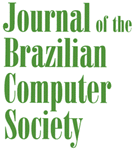Resumo em Inglês:
Despite the many research efforts addressing the integration of mobile nodes into grids, only a few of them have considered the establishment of mobile grids over wireless ad hoc networks (hereafter, mobile ad hoc grids). Clearly, such grids need specialized resource discovery and scheduling mechanisms. To the best of our knowledge, though, the research on these mechanisms for mobile ad hoc grids is still preliminary. Besides, and more importantly, it has approached discovery and scheduling as separate mechanisms, which, we argue, is not suitable for mobile ad hoc grids. In this paper, we propose the integration of resource discovery and scheduling for mobile ad hoc grids into a single protocol called DICHOTOMY (DIscovery and sCHeduling prOTOcol for MobilitY). This protocol allows computational tasks to be distributed appropriately in a mobile ad hoc grid, while mitigating the overhead of discovery messages exchanged among the nodes. Our experiments show that the protocol: (i) does proper scheduling, allowing an efficient load balancing among the nodes and helping with lowering the average completion time of tasks; (ii) keeps the discovery efficiency at acceptable levels in mobility scenarios and (iii) scales very well with respect to an increasing number of nodes, both in the total amount of energy savings due to packet transmissions and the distribution of such savings among the nodes.
